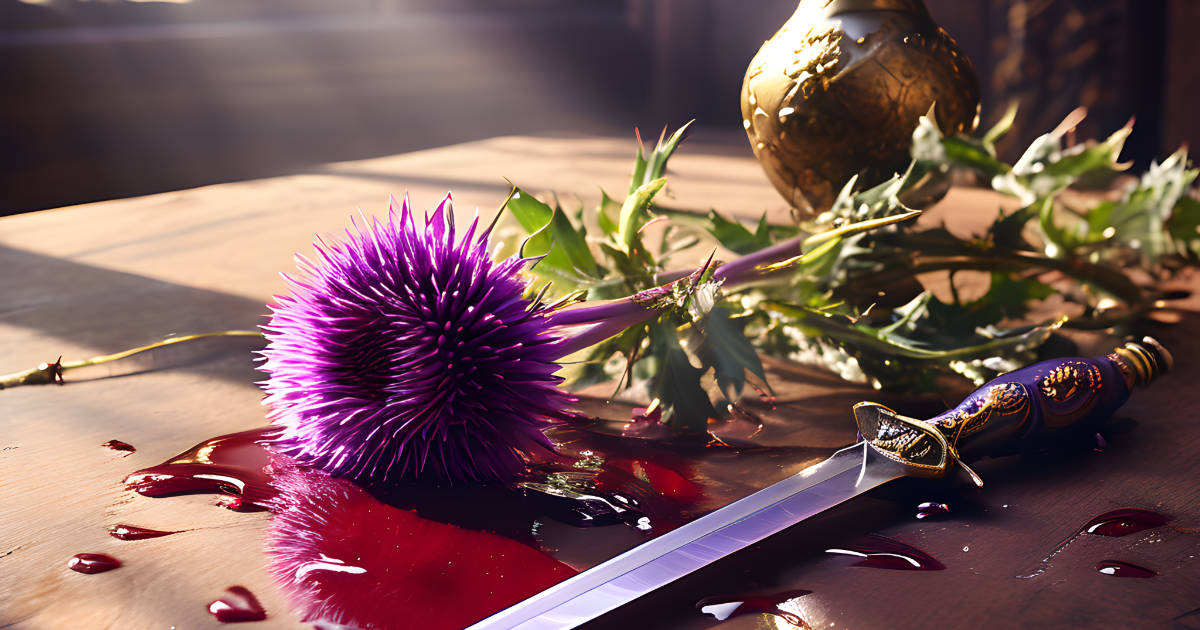Melees are very different from dueling. The primary difference between duels and melees is in the need to expand your focus. In single combat, you’re able to focus nearly all of your attention on your opponent. In a melee, however, this focus must be divided between multiple opponents, maintaining position within the unit, following orders, and coordinating offensive and defensive movements with your team. It can be overwhelming but fortunately, most of these problems disappear with training and experience as you work to become a Meleeist.
Points of safety
Beyond what was discussed in Basics of Melee, being a safe Meleeist comes down to being conscientious of how your actions impact others out on the melee field. There can be a lot going on, elevated emotions, and pressure to not let your team down. It can be tough, but it should never distract you from being safe and making sure everyone else feels safe too.
- Just Because You Can, Doesn’t Mean You Should: You will have opportunities to do things that may not break the rules, but might affect the experience of others or put you at risk. Show consideration and restraint throughout your melees.
- Assume the Best Intentions: Emotions can get high and others may give a hard shot or do something to upset you. Always assume that it was an accident and that they wouldn’t purposefully frustrate you. If there are further concerns, bring it up with an Officer.
- Be Willing to Leave the Field: At any moment, you are allowed to leave the field if you are a feeling off or unsafe. Do not be afraid to remove yourself from situations that upset you and give yourself time to cool off.
General Points
Melee is a skill that we should all be aiming to improve. It isn’t just a series of duels with lots of walking/running in between. It’s about being a team and learning the dynamics of group combat. The more you are willing to engage and give melees your attention, the more often you will experience tight and epic battles, filled with exhilarating moments.
- Bring Your Best Self: You should be bringing the correct weapons, a good attitude, and the right knowledge every time you jump into a melee. You won’t do your team any favors if you don’t bring the best that you can to the fight.
- Be a Team Player: No matter what experience you bring, it’s your responsibilty to do your part and contribute to your team the best way you can. It’s not about getting kills, but about helping your team find victory together.
- Know the Ground Rules: The Basics of Melee introduced some core strategies, but there are general melee rules that apply almost all the time. Get a good grasp on all the components of a melee, but also understand the following:
- Focus on the Main Objective: Regardless of the melee, there is always a Main Objective. Stay focused on that goal and try not to get distracted with side quests or the need to get the kill.
- If You Don’t Know Who’s in Command, You Are: Whatever is going on if you don’t know who is in command, you are. Take charge and start communicating with your team. Be loud and don’t be afraid to shout an order.
- If You’re Being Ignored, Make Them Pay: The most dangerous person on the field is the person who is being ignored. If you find yourself being ignored, make your opponent pay for their mistake.
- Problem Solve: As you fill a role on your team, consider what problems need to be solved and how do you want to solve them. Pinpointing specific problems that you are facing or need to solve is the real key to getting involved in a melee. Figure out the one right if front of you and then move onto the next one.
Training Ideas
- Break It Down: Break down melees into their bite-sized chunks. What kind of Rez’s are there and how do they work? What types of melees are there and how do they play differently? How do other fencers view melees?
- Shadow Train: Grab another fencer and just follow them around during a melee. Watch what they do and bonus points if you can get them talking about their thought process in the moment. Try to replicate what you notice.
- Mission Accomplished: Before the melee starts, give yourself one mission. Something that can help your team, but may not be the main objective. Figure out how you can complete that mission and what it takes.
Assessment
- Safe Meleeist: Can you show restraint and consider how your actions might affect others? Do you know what to do when someone upsets you or your emotions get high? What strategies can help you shoulder the pressures of melee fighting?
- Raising Your Melee Game: What are the main focuses of being a Meleeist? How can you be a team player in every melee? What rules apply in almost every melee?
- Meleeist in Training: What areas of Melee are you interested in persuing? How can you incorporate melee training in addition to any dueling study? What parts of Melee should you focus on first?

